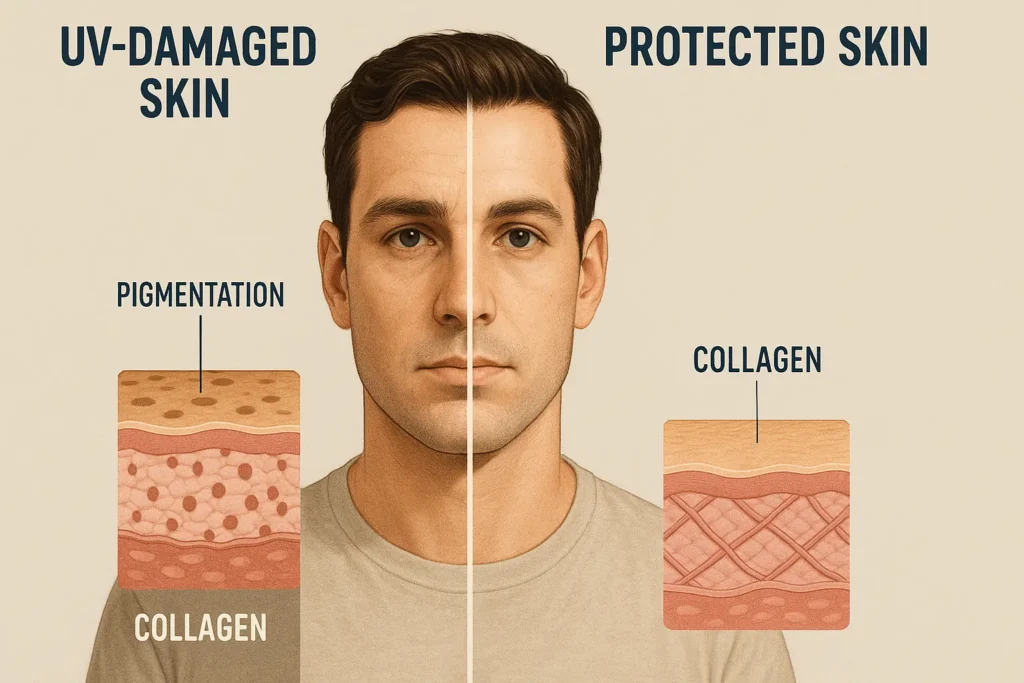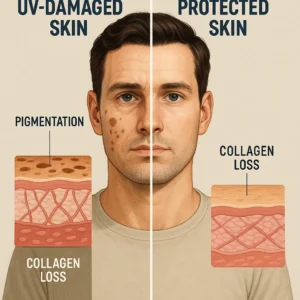Complete Anti-Aging Skincare Regimen For Men in 2026: Dermo-Recommended Guide
Men’s Anti-Aging Skincare Regimen isn’t just for older generations—it’s a proactive strategy for every man seeking resilient, timeless skin.
Discover how modern science, natural collagen boosters for skin, and intentional habits converge to combat aging at its roots. This guide combines precision-driven ingredients like retinol and hyaluronic acid with anti-aging diet meal plans and lifestyle essentials—sleep, nutrition, and sun protection—to create a regimen that fortifies the skin’s structure, reverses damage, and unlocks lasting radiance.
Age gracefully by empowering your skin today.
Age gracefully by empowering your skin today.
Biological Processes Behind Aging Skin
Cellular Mechanisms Behind Aging Skin
Aging impairs keratinocyte differentiation and weakens the epidermal barrier. Reduced lipid production and irregular shedding lead to dryness, flakiness, and roughness, revealing how cellular aging affects skin integrity and smoothness.
Epidermal Turnover and Skin Cell Mitosis
As men age, epidermal turnover slows, leaving skin looking dull and uneven. Skin cell mitosis declines, causing thinner layers and slower healing.
Keratinocyte Differentiation and Its Role in Skin Texture
Keratinocytes mature less efficiently, disrupting the skin’s barrier and leading to a flaky or rough texture.
Fibroblast Activation and Collagen Synthesis Decline
Fibroblasts produce less collagen over time, leading to loss of firmness and deepening wrinkles. Support collagen production through collagen-boosting foods for skin (e.g., bone broth, leafy greens) and topical actives like peptides.
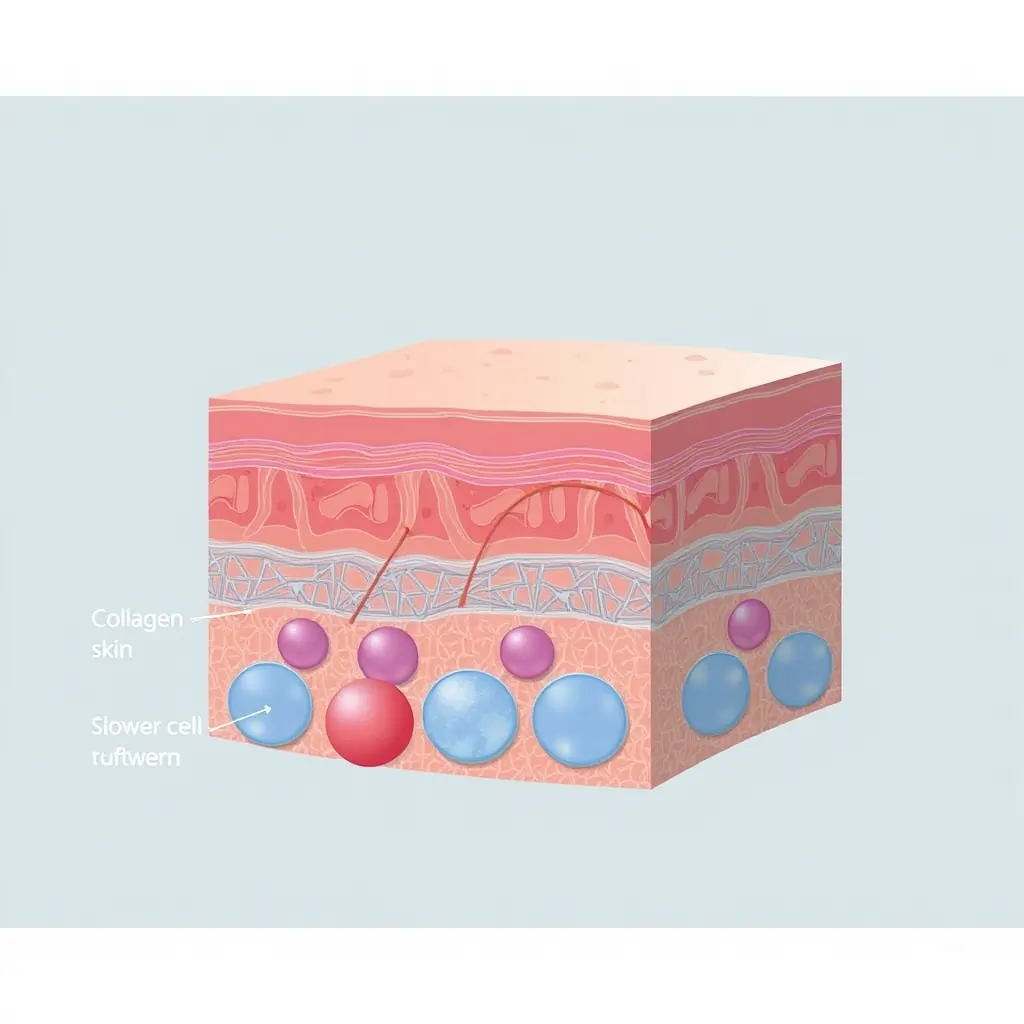
Hormonal and Environmental Influences
Hormonal shifts and environmental stressors accelerate aging. Declining testosterone reduces collagen, while cortisol from stress and UV exposure degrades skin elasticity, causing dryness, wrinkles, and hyperpigmentation through cellular and DNA damage.
Hormonal Skin Changes and Collagen Renewal
Testosterone levels decline with age, reducing collagen synthesis and leading to dryness. Hormonal shifts also affect oil production and texture.
Stress and Skin Aging: Cortisol’s Impact on Elasticity
Chronic stress spikes cortisol, breaking down collagen and worsening elasticity.
UV-Induced DNA Damage and Photoaging
Sun exposure damages DNA, accelerating photoaging and causing hyperpigmentation, wrinkles, and loss of elasticity.
Essential Ingredients for Natural Age Reversal
Antioxidants and Nrf2 Pathway Activation
Antioxidants combat oxidative stress by neutralizing free radicals. Activation of the Nrf2 pathway amplifies this defense, triggering genes that produce antioxidant enzymes, enhancing cellular resilience, and reducing inflammation.
Together, they protect cells from damage, support overall health, and potentially lower the risks of chronic diseases linked to oxidative imbalance.
Nrf2 Pathway Activation for Oxidative Stress Reduction
Activating Nrf2 helps combat free radicals, reducing oxidative stress, and slowing visible aging.
Fermented Skincare Products for Microbiome-Friendly Repair
Fermented ingredients boost probiotics, supporting the microbiome and enhancing skin barrier function.
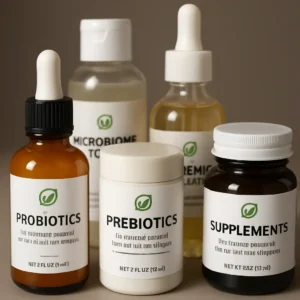
Hydration and Barrier Repair
Hyaluronic Acid Metabolism vs. Polyglutamic Acid Benefits
Hyaluronic acid locks in moisture, while polyglutamic acid provides longer hydration by forming a protective layer.
Ceramides for Skin Barrier Repair and TEWL Prevention
Ceramides strengthen the skin’s barrier, reducing transepidermal water loss and keeping skin supple.
Panthenol Skin Repair and Niacinamide Barrier Strengthening
Panthenol soothes and hydrates, while niacinamide reduces inflammation and boosts barrier resilience.

Morning Skincare Steps for Men Over 30
Gentle Cleansing and Hydrating Essences
For men over 30, start with a pH-balanced cleanser to remove impurities without stripping natural oils. Follow with a hydrating essence packed with hyaluronic acid or aloe vera to replenish moisture, boost absorption, and prep skin for subsequent anti-aging steps. These essentials combat dryness, enhance elasticity, and support a resilient, radiant complexion.
Enzyme Exfoliators for Sensitive, Aging Skin
Enzyme-based exfoliators gently remove dead cells without irritation, enhancing texture and preparing skin for actives.
Hydrating Essences to Prep Skin for Active Ingredients
Essences deliver lightweight hydration, prepping skin to absorb serums and treatments more effectively.
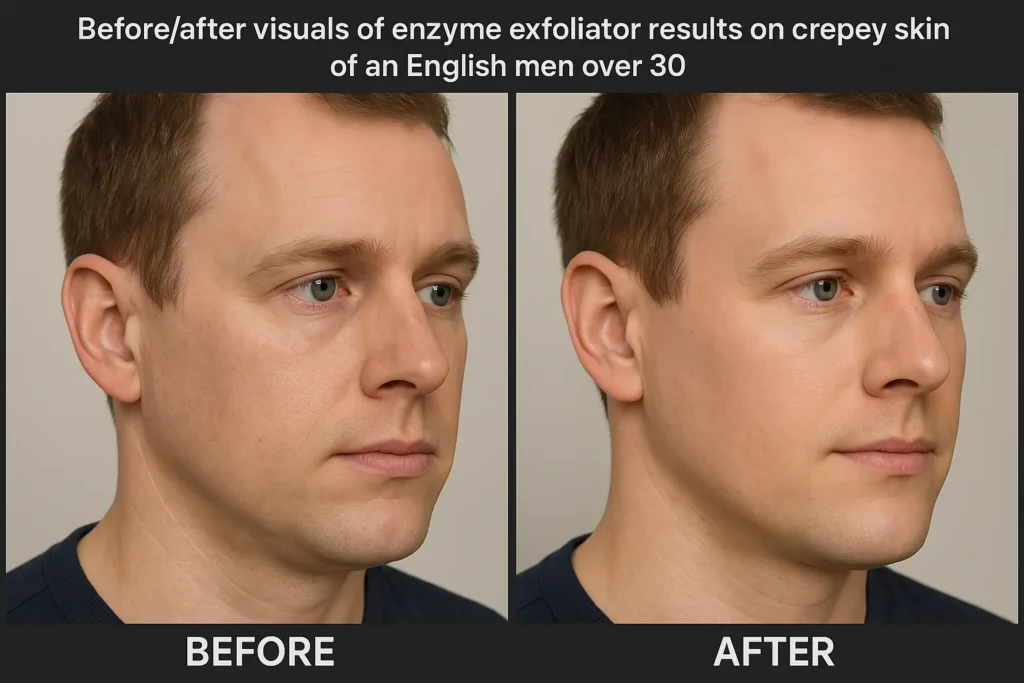
Antioxidant Protection and Sun Defense
Antioxidants neutralize free radicals, prevent UV damage, and support collagen—layer antioxidant-rich formulas with SPF for comprehensive defense.
These strategies reinforce skin’s resilience against environmental stressors, slowing visible aging while addressing oxidative imbalance and sun-induced harm.
Vitamin C Serum for UV Defense and Collagen Synthesis
Vitamin C neutralizes free radicals, brightens tone, and stimulates collagen production.
How to Protect Your Skin From the Sun Without Sunscreen
Wear hats, UPF clothing, and apply antioxidant-rich serums like ferulic acid for extra UV defense.
Sun Protection for Skin Cancer Prevention: SPF Myths vs. Facts
SPF 30+ blocks ~97% UVB rays, but reapplication every 2 hours is key for real protection.
![]()
Overnight Skin Regeneration
Retinol and Bakuchiol Alternatives
Retinol and bakuchiol power overnight skin regeneration by stimulating cell turnover, boosting collagen, and refining texture—retinol offers proven efficacy. In contrast, bakuchiol provides a gentle, plant-based alternative for sensitive or reactive skin.
These ingredients support long-term skin health, addressing signs of aging and environmental damage while maintaining tolerance for diverse skin types through balanced bioactive formulations.
Retinol Skin Renewing Microdose Serums for Beginners
Microdosed retinol delivers low concentrations to reduce irritation while boosting cell turnover and collagen.
Bakuchiol as a Retinol Alternative for Sensitive Skin
Bakuchiol mimics retinol’s benefits without harshness and is ideal for sensitive or reactive skin types.
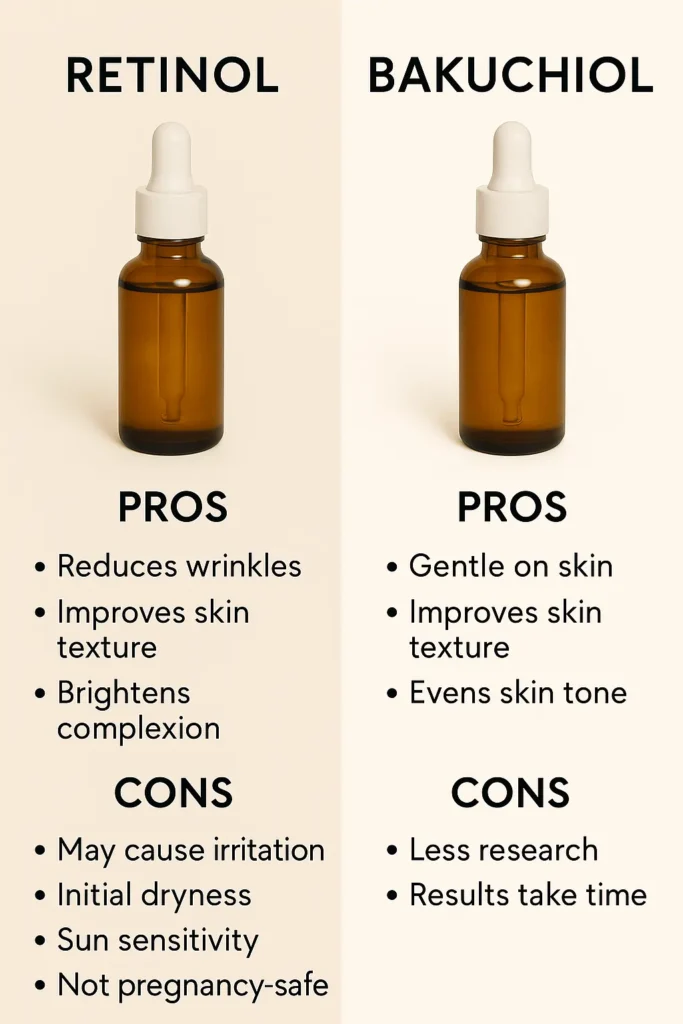
Deep Hydration and Corneocyte Desquamation
Hyaluronic Acid Layering Techniques for Mature Skin
Layer low-molecular HA first for deep hydration, followed by high-molecular HA for surface plumping.
Corneocyte Desquamation and Enzyme Exfoliators
Enzyme exfoliators break down dead cells, enhancing corneocyte desquamation and smoothing texture.
Professional Skincare Treatments Overview
Technology-Driven Solutions
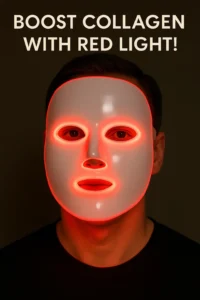 Leverage cutting-edge, science-backed innovations to address skin concerns with precision.
Leverage cutting-edge, science-backed innovations to address skin concerns with precision.
These non-invasive treatments harness advanced tools like light-based therapies and micro-injury techniques to stimulate cellular repair, enhance collagen production, and improve texture, delivering visible results with minimal downtime compared to traditional methods.
LED Light Therapy for Collagen Renewal
Red light stimulates fibroblasts, boosting collagen and reducing inflammation for firmer skin.
Microneedling Pens for Fibroblast Activation
Tiny needles trigger micro-injuries, activating fibroblasts to produce collagen and elastin.
Lifestyle Factors That Accelerate or Slow Aging
Nutrition for Skin Health
Fuel your skin with antioxidant-rich anti-aging foods, like berries, nuts, and fatty fish, for glowing skin. Integrate collagen-boosting foods for skin, such as bone broth, citrus fruits, and leafy greens, to combat oxidative stress and support collagen synthesis.
For hydration, leverage coconut water’s anti-aging benefits—its electrolytes and cytokinins enhance elasticity. Don’t overlook green tea anti-aging benefits: its catechins protect against UV damage and improve texture.
To boost moisture retention, include hyaluronic acid, natural food sources like soy products, and root vegetables. Spice up meals with anti-aging herbs like turmeric and rosemary to reduce inflammation.
To naturally slow the aging process, adopt an anti-aging diet that emphasizes omega-3s, antioxidants, and low-glycemic foods.
Detox Your Skin Naturally:
-
Drink lemon water and herbal teas to flush toxins.
-
Add fiber-rich foods (oats, chia seeds) and chlorophyll-packed greens.
-
Use gentle exfoliants, such as papaya enzyme masks.
To make skin firmer, pair collagen-rich foods with vitamin E sources (like almonds and spinach) and resistance training to boost elasticity.
Anti-Glycation Diets to Prevent Collagen Breakdown
Avoid sugar-heavy meals; use antioxidants like berries and green tea to prevent glycation.
Omega-3s and Antioxidants for Inflammation Reduction
Fatty fish, chia seeds, and dark leafy greens reduce oxidative stress and keep skin supple.
Stress Management and Circadian Rhythm Skincare
Circadian rhythm skincare for overnight repair
Sync skincare with your body’s clock—use antioxidants in AM and repair-focused ingredients at night.
Meditation and Sleep Quality for Skin Cell Mitosis
Poor sleep disrupts mitosis in skin cells, leading to dullness and uneven tone.
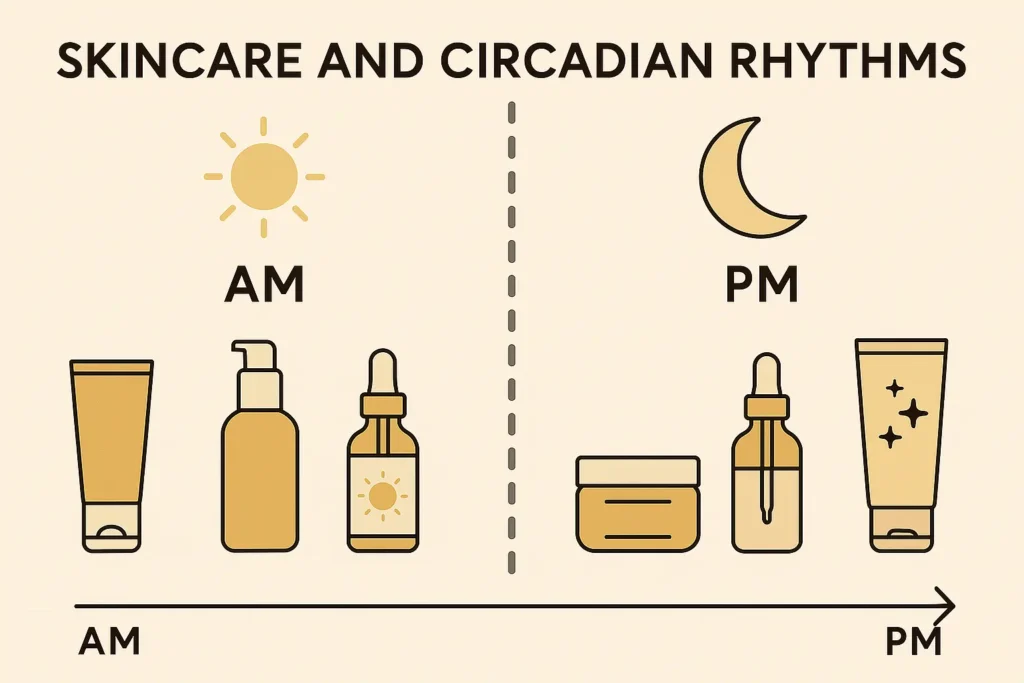
Beginner-Friendly Anti-Aging Routines for Men in Their 20s
Minimalist Routines for Beginners
Clean, non-toxic formulas suit men in their 20s seeking anti-aging basics. Prioritize gentle, effective ingredients like vitamin C and SPF to prevent early signs. Simplify routines—focus on hydration, protection, and minimal irritation to build lifelong skin health habits.
Anti-aging Products for 20s: Clean Beauty Standards
Start with gentle cleansers, vitamin C serums, and broad-spectrum SPF to prevent early signs.
How to Start Using Retinol Without Irritation?
Introduce retinol slowly—1-2 times/week—and pair it with ceramide-rich moisturizers to buffer sensitivity.
Product Cocktailing and Skin Cycling
Skin Cycling Schedule Template for Actives Like Retinol
2 nights: retinol → 1 night: exfoliant → 3 nights: recovery (moisturizer + barrier repair).
Serum Cocktailing Technique for Collagen Renewal
Mix vitamin C with hyaluronic acid or niacinamide with peptides for synergistic anti-aging benefits.
Conclusion: A Holistic Approach to Men’s Ageless Skin
Achieving ageless skin requires a multifaceted strategy that combines science-backed formulations with intentional lifestyle choices. Embrace precision-driven ingredients—retinol for cellular renewal, hyaluronic acid for hydration, and ceramides for barrier fortification—to address visible aging while reinforcing skin’s structural integrity. Complement these with natural remedies for crow’s feet, like rosehip oil or chamomile-infused serums, to gently smooth fine lines and nurture delicate eye-area skin.
Equally vital are foundational habits: prioritize sleep to optimize repair cycles, nourish with antioxidant-rich diets packed with anti-aging foods for glowing skin, such as berries, walnuts, and spinach, and hydrate daily with green tea and coconut water—anti-aging benefits include fighting free radicals, boosting collagen, and maintaining skin’s elasticity. Regular exercise further enhances circulation, ensuring nutrients reach skin cells efficiently.
Pair these with rigorous sun protection and stress management to mitigate environmental and hormonal factors that accelerate aging. True radiance stems from synergy—uniting topical efficacy with inner vitality, where cutting-edge science meets nature’s wisdom, to cultivate resilient, timeless skin.
FAQ: Men’s Anti-Aging Skincare Regimen
1. When Should Men Start an Anti-Aging Skincare Routine?
Start in your 20s to preemptively address collagen decline, UV damage, and oxidative stress. Early adoption of gentle ingredients like vitamin C and SPF helps build resilience, preventing premature wrinkles and texture changes associated with aging.
2. What are the Most Effective Anti-Aging Ingredients for Men?
Retinol boosts collagen and cell turnover, hyaluronic acid enhances hydration, and ceramides reinforce the epidermal barrier. Pair with antioxidants (e.g., green tea, ferulic acid) to neutralize free radicals and combat environmental aging accelerants.
3. How Can Men Use Retinol Without Irritating Their Skin?
Begin with microdosed formulations 1–2 times weekly, gradually increasing frequency. Layer retinol over ceramide-rich moisturizers to buffer sensitivity, and avoid combining with harsh exfoliants to prevent over-exfoliation or redness.
4. Is Natural Skincare Better than Clinical Ingredients for Aging Skin?
Science-backed formulations (e.g., bakuchiol, niacinamide) often outperform natural remedies alone. However, botanicals like aloe vera or chamomile can complement clinical ingredients by soothing inflammation and supporting barrier repair in sensitive skin types.
5. Why is Sun Protection Crucial in Anti-Aging Skincare?
UV exposure accelerates photoaging by damaging collagen, impairing DNA repair, and increasing hyperpigmentation. Broad-spectrum SPF 30+ blocks UVB rays, while UPF clothing and antioxidants like vitamin E offer layered defense against oxidative stress and premature wrinkling.
6. How Do Lifestyle Habits Impact Skin Ageing?
Chronic stress elevates cortisol, which breaks down collagen and weakens elasticity. Prioritize sleep for cellular repair, hydrate to maintain plumpness, and exercise to boost circulation—key factors in sustaining skin’s firmness, texture, and radiance over time.
7. What Foods Naturally Boost Collagen and Detox Skin?
For collagen, eat citrus fruits, bone broth, and leafy greens. Detox with green tea, dandelion root, and hydration.
8. Is Natural Skincare Better than Clinical Ingredients?
Combine both! Use bakuchiol (plant-based retinol) and the best anti-aging herbs (turmeric, chamomile) alongside clinical staples like vitamin C.
📋 Medical Disclaimer
For Educational Purposes Only: This article is written by Kousar Subhan, a Medical Writer and Researcher, and is intended for informational and educational purposes only. The content provided is based on scientific research, peer-reviewed studies, and dermatological literature available as of December 2025.
Not Medical Advice: The information in this article does not constitute medical advice, diagnosis, or treatment recommendations. It should not be used as a substitute for professional medical consultation, diagnosis, or treatment from a board-certified dermatologist or qualified healthcare provider.
Individual Results May Vary: Skin conditions, including hyperpigmentation, melasma, and UV-induced pigmentation, vary significantly between individuals based on genetics, skin type, hormonal factors, and environmental exposure.
Consult Your Healthcare Provider: Before starting any new skincare regimen, especially if you are pregnant, breastfeeding, have diagnosed skin conditions, are taking medications, have sensitive skin, or are undergoing dermatological treatments.
Product Safety: Always perform a patch test before using new skincare products. Discontinue use and consult a healthcare professional if you experience irritation or adverse reactions.

